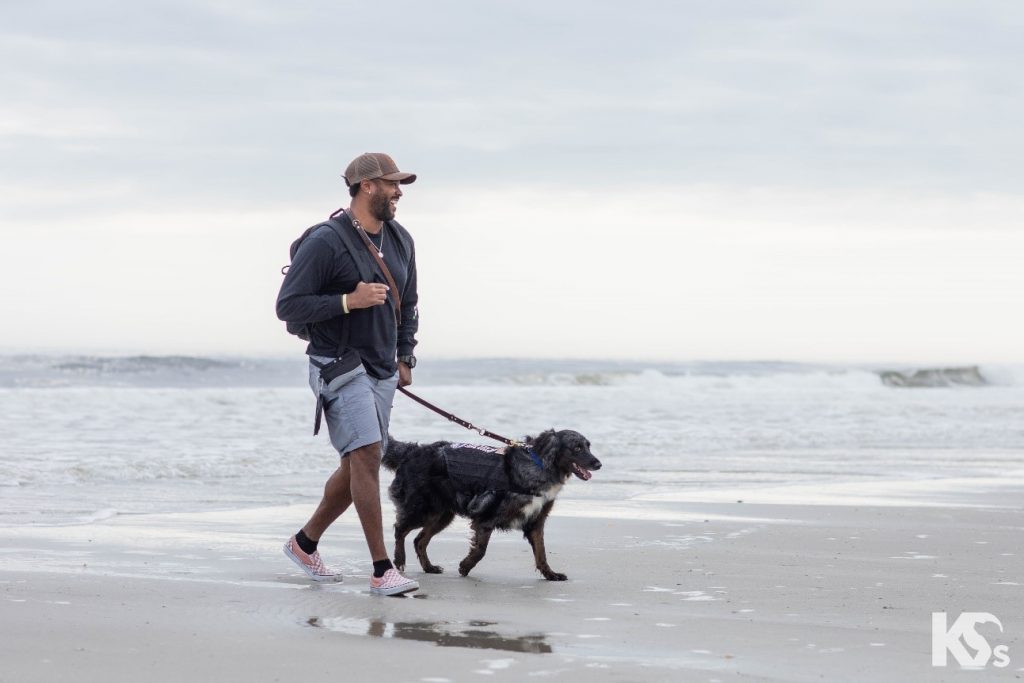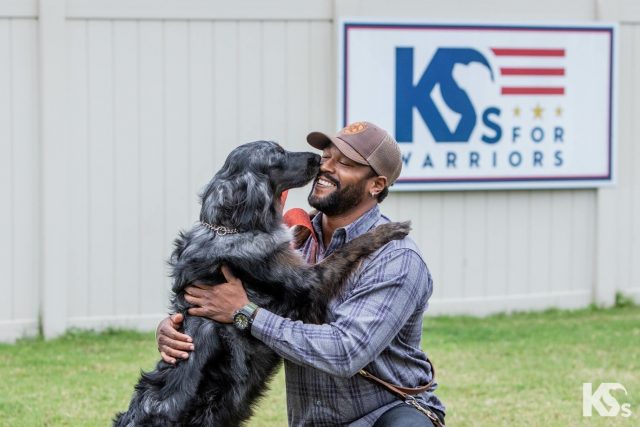K9s For Warriors is an organization dedicated to assisting military veterans across the United States, providing Service Dogs for those suffering from the invisible war wounds. In the following article, K9s For Warriors explains how Service Dogs are trained to detect and respond to their handler’s triggers.
When Quinton returned to the U.S. after combat in the Marine Corps, even mundane tasks felt overwhelming. It was difficult physically and mentally for him to complete tasks like going to the grocery store.
Then came Moly.
Quinton instantly connected with Moly, a rescue dog trained by K9s For Warriors to assist with post-traumatic stress disorder (PTSD). There was an immediate bond formed — an unspoken trust. Moly immediately became a companion and an essential guide for Quinton to live his life without the anxiety and fear once connected to completing errands or going to crowded places.
What Moly did was give Quinton nothing less than the gift of living again, he said.
K9s For Warriors explains that Quinton is far from alone. About 8% of people experience some form of PTSD during their lives. Military veterans, first responders, and sexual assault survivors are at a much higher risk of developing PTSD due to the extreme nature of their work and trauma. Of those with PTSD, nearly 37% of cases are considered severe, according to the National Institutes of Health.
Service dogs like Moly are not just helpful for those with PTSD. They are invaluable.
K9s For Warriors Explains More on PTSD
PTSD may develop when one witnesses or experiences one or many traumatic events, whether they are physical or emotionally harmful. PTSD has far-ranging impacts on one’s social, physical, mental, and spiritual well-being.
Many connect PTSD to soldiers experiencing shell shock during times of war, but it can impact those of any background, age, or ethnicity and those with any occupation.
K9s For Warriors explains that PTSD presents itself in many different ways. Commonly, it induces feelings of intense anxiety and disturbing visuals and thoughts tied to an experience even long after it occurs.
People suffering with the disorder often display symptoms shared with depression, such as feelings of hopelessness or insurmountable sadness, loneliness, and anger. There may be nightmares or flashbacks. Certain noises may worsen one’s PTSD or trigger symptoms and it can cause those that suffer to be on high alert well after the traumatic event has passed.
Service Dogs and PTSD
K9s For Warriors says treatment for PTSD ranges from medication to various forms of trauma-centric therapy. Often a combination of treatments is needed and effective.
Service Dogs are not the same as emotional support animals. For instance, Service Dogs are covered by the Americans with Disabilities Act, while emotional support animals are not.

These service dogs are a constant support system for their Warriors, but scientists are digging deeper to learn more. The OHAIRE Lab at the University of Arizona College of Veterinary Medicine is conducting research with K9s For Warriors to look at the efficacy of service dogs to measure whether they clinically help reduce symptoms of PTSD, and anxiety.
Anecdotal evidence suggests that Service Dogs indeed do offer unique benefits to veterans who have experienced trauma. Their constant presence and support help their Warriors feel safe and secure, which allows them to regain their dignity and independence.
K9s For Warriors says that if it is sensed that a handler is experiencing flashbacks or damaging repetitive behaviors, Service Dogs can interrupt by licking, nudging, or even laying down on an owner.
Overall, these specially trained companions help their Warrior feel safer in multiple environments and that leads to greater independence and a better quality of life.









